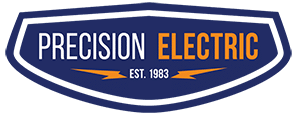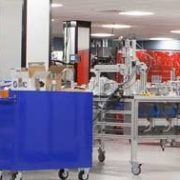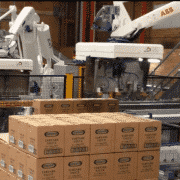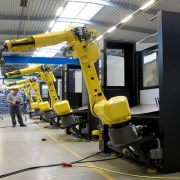Yaskawa Servo Motor Repair
Yaskawaservo motor repair is less expensive than Yaskawa servo motor replacement. Only trained technicians should perform Yaskawa servo motor repair. Trained technicians undergo unique testing procedures on Yaskawa servo motors that are dependent to eachservo motors’ model, features, operations, and prints. Trained technicians will have the ability to perform these procedures successfully and safely. The first step of Yaskawa servo motor repair is the inspection of equipment for cosmetic damage or missing parts. Trained technicians take this step to ensure a successful repair is possible before proceeding further. Taking digital photos of the servo motor prior to further processing is also suggested.
Servo Motor nameplate data and preventative maintenance info should be collected by the technician and safely stored for future reference. Once these initial steps are complete, the servo motor should be meter tested before test running on a control panel; Meter testing prevents further damage to parts, motor winding, and insulation. The servo motor should then beconnected to a test panel to check EMF (electromagnetic frequency), encoder or resolver feedback, and commutation alignment; These standard tests are to ensure functionality, oncethe motor is installed forproduction. Servo motors also need to be tested with an oscilloscope to create an operation print. Once an operation printout is generated, a technicianwill check for connection issues, magnet failure, and winding failure. Once this is complete, the trained technician will perform a 100% component test to the servo motor. Once these tests are finished, the cost to repair and replace parts is estimated and labor is also determined. If the cost to repair the servo motor exceeds 50-60% of the cost to replace, the customer is offered a replacement quote. Otherwise, the technician can create a repairquote with lead time and communicate all pertinent information to the customer. Once the customer approves the repair quote, the technician will proceed with the repair.
Now, the technician will have an in-house machinist perform shaft and bearing housing repairs that are damaged. Old bearings are removed and saved for future reference. The technician will clean up and make repairs to all other damaged parts; replacement parts that cannot be repaired are ordered at this time. Finally, the technician will install new bearings and reassemble the servo motor for final testing. During the final test procedure, technicians should connect the motor to an inverter,with and without a load. Running the servo motor on an inverterensures complete functionality; Running the servo motor with a load will ensure full functionality once it is running in production. Testing with an inverter also allows verification that the servo can operate at full voltage and withstand full load amps of motor specifications. Yaskawa servo motor repair shops should work closely with all servo motor manufacturers. Working closely with servo motor manufacturers allows repair shops accessibility to servo motor data sheets, parts, and other valuableinformation. Repair technicians use data sheets to ensure that the servo motor performs equal to orbetter than, the original manufacturer standards.
Most Yaskawa servo motor repair shops offering servo motor repair don’t perform the repair themselves. These repair shops actually outsource the repair to a third party and then mark up the repair price to their customer. Outsourcing the servo motor repair is not a good idea. Outsourcing the repair is done when the repair shop does not have the ability or training to perform the servo motor repair. Repair shops use third party repair shops such as Precision Electric, because Precision Electric has been in the manufacturing industry since 1984 and their competent staff have the skills and training needed to perform these services. Most customers don’t find out that their repair shop is outsourcing the repair to Precision Electric until they contact the repair center asking technical questions. When this happens, the repair center is unable to communicate or provide technical information to the customer; and the repair center has their customer call Precision Electric for the answers they need.
This process ends up costing the manufacturer more money, time, and additional problems with their equipment. Manufacturers and other servo motor users should send their Yaskawa servo motor to the company that is actually performing the repair. This will save money, time and this will ensure a professional and high quality repair. Yaskawa servo motor repair from Precision Electric is performed in house and includes a 12 month in-service warranty. For Yaskawaservo motor repair and replacement quotes, contactPrecision Electric at 574-256-1000. Or, initiate your servo motor repair here and send it to Precision Electric today.








